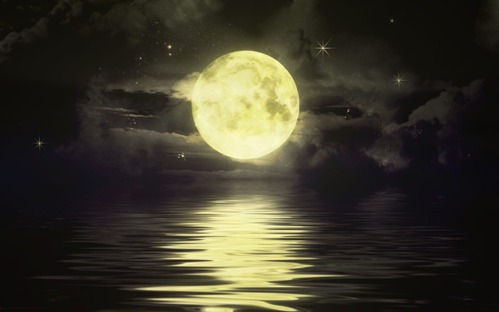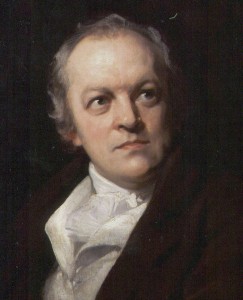What with the Christian holiday of Easter taking place yesterday, and the Jewish holiday of Passover beginning this past Friday, I thought it was fitting to choose a religious poem for this week’s “The Next Chapter.” William Blake’s “Night” makes allusions to guardian angels, God, and even demons. The poem makes the point that God will protect you in life and in death, and uses the symbol of night to represent death. The first few lines could be interpreted as a willing acceptance of death:
The sun descending in the west,
The evening star does shine;
The birds are silent in their nest.
And I must seek for mine. (1-4)
Night, or death, is looked on favorably, since the evening star “shine[s].” Also, the image of the birds “silent in their nest” conveys the sense that their final resting place is their home. The narrator willingly accepts his own fate when he says, “I must seek for mine.” Blake elaborates on this approval of death with the following lines:
The moon, like a flower,
In heaven’s high bower,
With silent delight
Sits and smiles on the night. (5-8)
The moon is described pleasantly, as resembling a flower, and as a part of heaven. And in this way, heaven itself “smiles on the night,” or happily takes those that have died into its protection. Next, William Blake introduces the angels into his poem, and describes how “silent move/The feet of angels bright” (11-12). As for their work, the poet writes, “Unseen they pour blessing/And joy without ceasing…On each sleeping bosom” (13-16). The dead are looked after by the angels, and receive only good things, like “blessing[s]” and endless “joy.” The same would not be said if the poet did not have a positive view on death.
In the next stanza, the description of the angels’ work continues: they “look” (17) and “visit” (19) all people and animals, “to keep them all from harm” (20). And most importantly, they take the pain away from the dying:
If they see any weeping
That should have been sleeping,
They pour sleep on their head,
And sit down by their bed. (21-24)
The angels grant death to those who might be sick and suffering, and they comfort and defend them afterward too. Even if the angels aren’t able to help everyone transition from life to death, they are always there for support in the afterlife: “The angels, most heedful,/Receive each mild spirit, New worlds to inherit” (30-32).
Even the lion, who in the poem represents a kind of demon or evil force, begins to regret his actions and feel sorry for those that have died, as “pitying the tender cries” (35) he begins to contemplate his actions. There is a figurative “death” of evil in the world, as the lion says, “‘And now beside thee, bleating lamb,/I can lie down and sleep…’” (41-42). Therefore the poem ends happily, with good triumphing over evil, and death and the afterlife looked upon with acceptance and understanding. The angels have won, and even the lion will be looked after in death, as all of us will.

 “Night” by William Blake
“Night” by William Blake




 First the Wealth Gap, Now the U.S. Has a Growing Health Gap
First the Wealth Gap, Now the U.S. Has a Growing Health Gap
 How to Comfort A Dying Loved One
How to Comfort A Dying Loved One
 Our Annual Seven Holiday Gifts for Someone Who Is Grieving, 2024 Edition
Our Annual Seven Holiday Gifts for Someone Who Is Grieving, 2024 Edition














